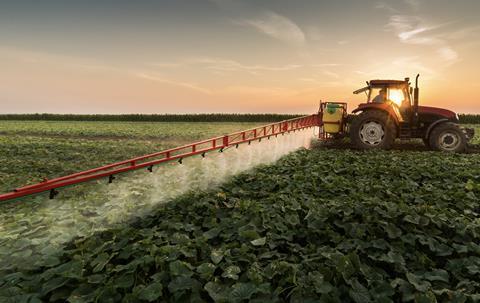McKinsey & Company has launched its Global Farmers Insights 2024, with respondents highlighting extreme weather, increased prices of input and unstable commodity prices as major challenges
New research released by McKinsey & Company has revealed that global farmers are eyeing sustainable practices, innovative technology implementation, and new yield-increasing products to boost profits given wider macro environmental pressure.

McKinsey’s 2024 Global Farmers Survey, which gathers perspectives from 4,400 farmers, outlined a ”cautiously optimistic” outlook around the ability to capture increased profits in the years to come.
However, expectations on rising profit margins differ widely based on region, with North American and European farmers overall expecting profits this year to be lower by 64 per cent and 55 per cent respectively.
Meanwhile, farmers in Latin America and India anticipate higher profits over the next two years, 58 per cent and 76 per cent respectively, up from 42 per cent and 37 per cent in 2022.
Sustainability focus
Sustainability is an area where farmers are investing as a means to improve productivity and add revenue streams, the survey found.
In India, North America and Latin America, farmers are implementing sustainable practices to increase yield, while European farmers are interested in additional revenue streams.
As weather-related risk continues to top farmers’ concerns, sustainable growth practices enable farmers to play a key role in shaping the future of climate to combat the challenges associated with extreme weather caused by climate change, McKinsey said.
“Farmers are facing a critical moment, with the economy and a range of macro factors putting immense pressure on the industry,” commented Vasanth Ganesan, partner at McKinsey.
”From extreme weather events to volatile commodities prices and supply chain disruptions, these challenges are driving up costs.
”Our survey shows that farmers who want to boost their profits in the coming years need to invest in their operations, whether through sustainable farming methods or adopting agtech to streamline processes and reduce labor-intensive tasks,” he outlined.
Technology adoption
The survey revealed that many farmers are also integrating new technology in their operations to bolster future profits.
However, technology adoption is largely dependent upon farm size – large farms (more than 2,500 acres) are 45 per cent more likely to adopt agtech compared to small farms (less than 100 acres), due to the scale needed for positive ROI in agtech.
McKinsey’s survey also found that farmers continue to cite input prices (48 per cent) as a main risk to future profits, despite a general decrease in the cost of fertiliser and crop protection active ingredients over the last year.
In fact, 13 per cent of farmers surveyed reported a perceived increase in overall costs over the past 12 months.
Additionally, extreme weather remains a top concern for farmers, with European and Latin American farmers in particular noting impact on profits.
Growers who cited extreme weather as a top risk are more likely to spend on agricultural purchases compared to counterparts (a 30 per cent increase in spend) and 50 per cent more likely to buy or lease more land within the next two years.
”As farmers re-evaluate their business operations to maximise profitability in today’s volatile economic landscape, amid extreme weather concerns and high commodity prices, many are turning to the adoption of new products and sustainable practices, but with the requirement that they must provide significant ROI for farmers to validate the changes necessary to overhaul their operations,” McKinsey added.



